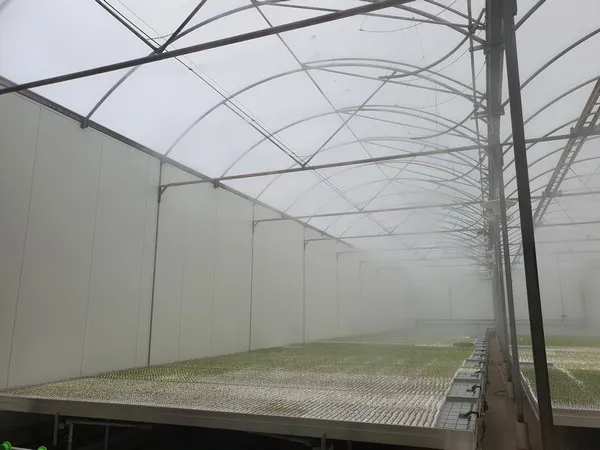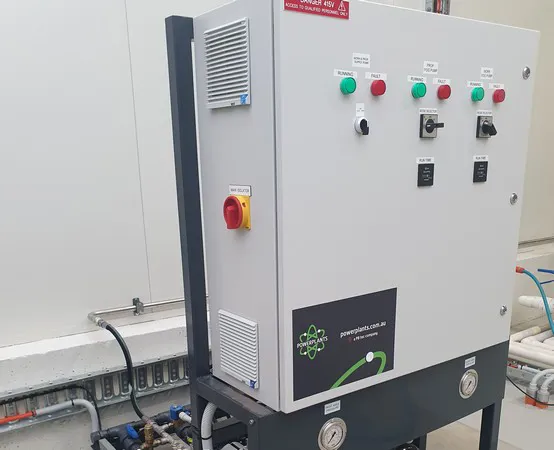By now you’ve probably heard about all the issues with shipping that are related to COVID-19: the global scarcity of containers, increased demand from China, union industrial action, skyrocketing airfreight prices, COVID cases at ports, bad steering in the Suez canal, and general profiteering by all parties involved. All this means you’ll need to add an extra month for sea-freight to Australia.
As a result, there are also problems with the supply of components that go into manufactured goods, causing additional increases to manufacturing times.

Photo courtesy of the new fogging and propagation facility at SA Tomato.
Horticultural equipment is in consistently high demand around the world, so production lead time was already long. Machinery like a Javo Plus Potting machine can now take up to 22 weeks to manufacture and 10-12 weeks from manufacturer to site. This means you need to plan 34 weeks ahead – that is more than 8 months!
With these impacts to the horticulture supply chain in mind, we need to start planning for seasonal equipment well before it’s needed. Growers often start considering ordering a fog system for cooling and humidification at the first signs of hot days, which might be in November, but you should really be thinking about it when it's freezing cold in the middle of winter.

Photo courtesy of the new fogging and propagation facility at SA Tomato.
Powerplants recently developed a new fogging pump system that consistently records sound levels at a lower decibel rate than competitor products. When measured at the amazing new SA Tomato Fogging and Propagation facility, our units recorded at 74 decibels (comparable with the sound levels of busy traffic) while competitor units recorded over 85 decibels. The development of these units aims to improve existing systems and minimize harm to nearby workers, as prolonged exposure to sound levels over 80 decibels has been linked with hearing damage. The Powerplants system reduces noise levels using a combination of low-speed (950 RPM) pumps and a pressure-controlled Variable Speed Drive. This also significantly reduces vibration and extends the longevity of the system.
 Powerplants Australia, A PB Tec Group Company
Powerplants Australia, A PB Tec Group Company
Carl.VanLoon@powerplants.com.au
www.powerplants.com.au
